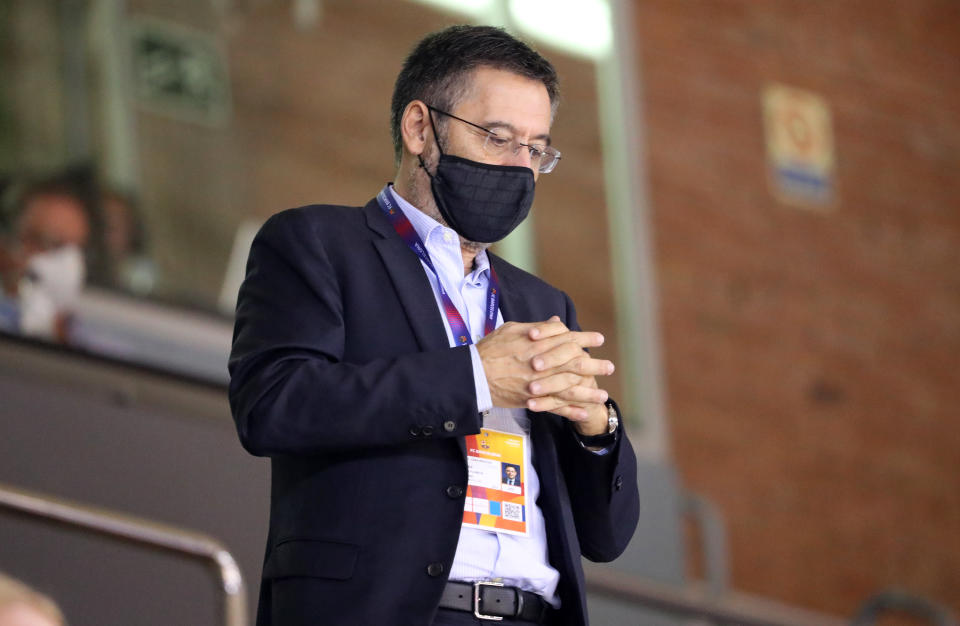Barcelona has regressed to its historically dysfunctional mean, which slipped our minds thanks to Lionel Messi
It’s important to remember that the 15-year stretch of Barcelona dominance, from the 2004-05 season through 2018-19, when the Catalans claimed four Champions League titles, 10 La Ligas and six Copa del Reys, was an outlier.
Barcelona defined a generation of the sport and reimagined what soccer could look like. But set against the backdrop of the club’s history, that era’s success and brilliance stood in sharp contrast to the century that preceded it.
Other than the four-year stretch of Johan Cruyff’s early-1990s Dream Team, Barca’s history was one of conflict and combustion and disappointment. Even as a player at the club, Cruyff won La Liga just once in five years. Until Cruyff returned as manager in 1988, Barca had been Spanish champions just 10 times and never once the champions of Europe.
After the high-flying 1990s, Barca transcended the sport in the first decade of the 21st century under Frank Rijkaard and then Pep Guardiola, before a grab-bag of other coaches rode out the final waves of the tide. Last season was the first since 2003-04 that Barcelona won nothing at all.
On Tuesday, club president Josep Bartomeu and the rest of his board resigned, perhaps marking the end of that triumphant run. Saturday’s 3-1 home loss to Real Madrid appears to have been the final straw. It was a second consecutive La Liga loss and. a third game without a win that cast Barca into 12th place, albeit with two games in hand over most other teams.
But it wasn’t about the losses. It was about all of it.

Barcelona has regressed back to the mean, reacquainting itself with the dysfunction that ruled before this remarkable decade-and-a-half spell. This stretch was ended infamously and irredeemably by the 8-2 loss to Bayern Munich in last season’s Champions League quarterfinal and superstar Lionel Messi’s subsequent, and ultimately futile, push to leave his childhood club.
Bartomeu had been in charge for almost seven years. He became a club director during Joan Laporta’s presidency, when Barca restored its status. He rose under Sandro Rossell’s presidency and took over for the latter in 2014, when Rossell was forced to resign in the Neymar transfer scandal.
Bartomeu was an accidental president, of sorts, but he was reelected in 2015. His term was up next summer and he could not stand again. But pressure kept growing. He had promised elections in the spring. It wasn’t enough. A no-confidence vote had gathered enough signatures to proceed in early November. Bartomeu tried to put off such a vote on account of the coronavirus spike in the region, but local government refuted that excuse.
His fate was probably sealed when Messi blasted him for his lack of vision and competence while announcing that he would play out the final year of his contract because the club wouldn’t honor a release clause the Argentine believed he had exercised properly.
Messi was fed up with the decay of the last half-decade. Of the hundreds of millions of euros spent on players who didn’t complement him, or really anybody else on the team. Of the blunder in allowing Neymar to leave in 2017. Of the team’s increasing reliance on him and the other veterans, no matter how much they aged. Of the revolving door of managers — six since Guardiola left in 2012 and three in this calendar year alone. Of the slow decline, the team a little weaker every subsequent season, a little older, a little more vulnerable.
All the while, Bartomeu seemed more focused on the business side, pushing for, and speaking incessantly of, becoming the sport’s first club to generate a billion euros in annual revenue. He was preoccupied with stadium renovations, neighborhood redevelopment, digital innovations. All the stuff that wasn’t the first team itself. Or the attendant results.
If the club was already in the throes of overlapping crises, the leadership vacuum at the top likely won’t improve matters in the short term. An election will be called in the coming months. And a new president is likely to install a new manager, which would spell doom for Ronald Koeman, if the poor results alone don’t do him in. It seems unlikely that Messi will go to bat for him, after Koeman told Messi he would no longer enjoy special privileges, shipped out some of his closest teammates and criticized his form publicly.
But there will be renewed hope that Messi will stick around next summer, when his contract finally expires. He will turn 34 years old then and there is an argument to be made that his presence has prevented an overdue rebuild. Yet returning to the summit tends to be easier when you have the world’s greatest player in your team, even one with a stratospheric salary and who stopped running years ago.
At one point last summer, Bartomeu promised that if Messi stayed, the president would resign. But Messi stayed and the president’s vow was somehow forgotten about. When he finally did resign, Bartomeu announced on his way out the door that he had signed Barca up for some kind of European Super League — a project that has been rumored for decades but never materialized — as if to drop that little bombshell purely for effect. Or perhaps he wants credit for it when if it ever does happen.
It was perhaps a fitting allegory for the Bartomeu era. While he was thinking about the future, about revenues and infrastructure and media products, the product on the field decayed. The core business suffered as the president diversified.
And now Barcelona is back to where it was, a sated giant that has lulled itself to sleep.
Leander Schaerlaeckens is a Yahoo Sports soccer columnist and a sports communication lecturer at Marist College. Follow him on Twitter @LeanderAlphabet.
More from Yahoo Sports:

 Yahoo Sports
Yahoo Sports 
